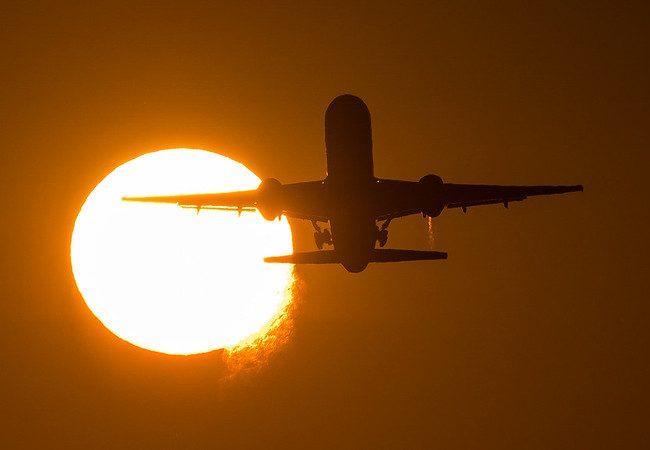Planet A
Last week, at the 41st Assembly of the International Civil Aviation Organization in Montreal, member states agreed on a ‘long-term global aspirational goal’ for aviation of net-zero emissions by 2050, despite opposition from Russia and China.
The plan is a vital support to the Paris climate agreement’s temperature goal and reinforces the leadership of the ICAO on climate-related issues. According to recent research published in Nature, by 2050, 90% decarbonisation compared with 2019 is achievable by using ultra-green fuels derived from biomass or clean electricity, along with continued efficiency gains in aircraft and operations.
Member countries also agreed on the use of the ‘Carbon Offsetting and Reduction Scheme for International Aviation’ to offset those carbon emissions that can’t be reduced or eliminated through technological or operational improvements.
However, environmental campaigners are critical of the effectiveness of the agreed resolution because of its lack of binding commitments. As a UN body, the ICAO has no authority over national governments and thus can’t impose rules on its members.
Democracy watch
Burkina Faso has begun the process to select a transitional president ahead of potential future elections, following two coups in the country. The first occurred in January and was led by Lieutenant Colonel Paul-Henri Damiba, who deposed President Roch Kabore after six years in power. Damiba cited the inability of the Kabore administration to halt violence attributed to rebel fighters allied to both Islamic State and al-Qaeda. The fighting has killed thousands and displaced roughly two million people since 2015.
An escalation in the violence since January, and continued clashes between protesters and security forces in September, led to Damiba himself being deposed in a second coup by Captain Ibrahim Traore on 30 September. Leading a faction of disgruntled junior officers, Traore was declared president on 5 October.
Given ongoing fighting, mass displacement and the fact that nearly a third of the country remains under rebel control, the re-establishment of democracy in Burkina Faso is likely to remain difficult despite this announcement.
Information operations
As campaigning for Brazil’s presidential election continues following the indecisive first round between incumbent Jair Bolsonaro and contender Luiz Inácio Lula da Silva, a breakdown in political discourse is testing the ability of Brazil’s electoral institutions to counter rampant disinformation.
In the deeply religious country, where 84% of people hold that belief in God is necessary to having good moral values, Bolsonaro’s campaign has been promoting claims that Lula is a Satanist who had ‘cut a deal with the devil’. The Superior Electoral Court determined last week that such material constituted disinformation that ‘compromises the fairness of the electoral process’. On the other side, Lula’s campaign has continued using the tagline ‘Bolsonaro would eat human flesh’ in its political advertising, despite the court’s ruling that the cannibalism charge ‘exceeds the limits of freedom of expression’.
While the judiciary may be able to restrain further comments by the campaigners, once disinformation narratives have entered the election’s digital pulse there may be little that can be done to undo the damage caused.
Follow the money
Links between transnational organised crime and more than 900 limited liability partnerships set up by just two companies have been uncovered in the UK. The companies are both registered at a property in Cardiff, just minutes away from Companies House, the main UK agency overseeing information on companies. LLPs offer greater secrecy than private companies and are favoured by international crime gangs to launder and conceal illicit funds.
The two companies that established the LLPs were linked to a fraud case in 2009 involving a US$230 million theft of Russian citizens’ money. Moscow lawyer Sergei Magnitsky exposed the fraud, resulting in his arrest, torture and death. It’s believed that much of the money flowing through the UK LLPs relies on lax financial regulations and is stolen from the Russian people.
The discovery comes as Westminster debates an economic crime and corporate transparency bill that proposes new powers of oversight for Companies House, including verifying the identities of those setting up firms and flagging suspicious activities to law enforcement.
Terror byte
Last Friday, Morocco’s foreign minister committed the government to addressing the ‘complex and transnational’ crisis of African terrorism. The speech closely followed Morocco’s accession to several subregional counterterrorism cooperation frameworks.
According to the 2022 Global Terrorism Index, 48% of the world’s terror victims reside in sub-Saharan Africa. In 2021, more than 7,000 terrorist attacks perpetrated by 27 distinct UN-sanctioned organisations murdered 30,000 Africans, costing the developing continent almost US$200 billion and representing one of the world’s most severe ongoing human security crises.
Morocco, a nation whose counterterrorism efforts consistently outperform its sub-Saharan neighbours, successfully demonstrated its credentials last week by dismantling a suspected Islamic State–linked terror cell. Moroccan security personnel cooperated with Spanish officers in conducting the raid, in which 11 terror suspects were arrested.
Aggressive police operations have been balanced in part by the pardoning of almost 30 prisoners convicted of crimes relating to terrorism or extremism, reflecting the nation’s prioritisation of rehabilitation as a key tenet of its counterterrorism strategy.


